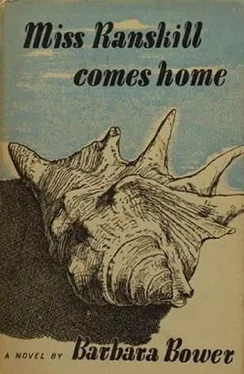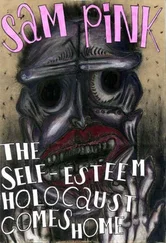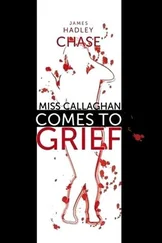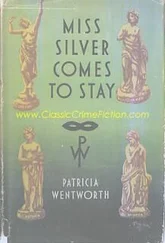‘Everyone lies to us. It’s so silly, when we are the people who know most of the truth. We must get a clearer view and see things in better proportion than they do. And yet they lie and lie and go on lying in their teeth about our chances of coming through and everything else. And when we want to marry they talk about war-weddings (war-weddings, my foot! Plenty of us are the result of those) and say there’ll be plenty of time to settle down after the war. They look at us and see divorce courts and orphans, and think we don’t know what they’re seeing.’
He lit a cigarette, peered at Miss Ranskill through a smoke-puff and repeated his question, ‘You’re sure I didn’t say anything else in my sleep?’
‘No.’
‘You see, it’s important because, well, because I’m going to be married this morning and my dreams aren’t very pretty sometimes, and I don’t want to scare Lucy. The mater doesn’t know about the marriage, I mean I might have told her if it hadn’t been for all this horoosh, but when she comes back and finds the house in a muck she’ll be too busy organising and sort of forming threes. Besides–’ he paused, ‘besides, the mater won’t like Lucy as a daughter-in-law. She won’t think she’s suitable.’
A procession of unsuitables paraded before Miss Ranskill’s mind’s eye – a predatory widow went undulating by, a barmaid flaunted her blowsiness, a chorus-girl shrieked, a vamp ogled, a married woman appeared unmistakably misunderstood. Possibly the young man saw them too, for he said, ‘She’s not a bit what you’d think.’
‘No,’ thought Miss Ranskill, ‘they never are,’ but she only said: ‘What is she like?’ and wished she need not hear the answer.
‘She’s,’ the airman puffed violently, ‘she’s so damned ordinary you wouldn’t believe in her.’
‘Then that’s all right.’
‘Oh! no, it’s not, not with the mater: you ought to know that, if you were at school with her. If Lucy were a duchess that would be all right, and if she were a dustman’s daughter that would be all right too, more or less, because the mater would enjoy putting a jolly good face on it. But Lucy’s father is Brown of Brown and Gilson’s, the second-best ironmongers in Hartmouth, and she only scraped into the Tennis Club because she’d been sent to a fairly good boarding-school. The mater only just knows Mrs Brown on Committee Meetings, and says she’s “a nice little woman”. She thinks Lucy’s a “nice well-brought-up little girl” too: so she is, bless her! She doesn’t exactly say “pardon,” and she hasn’t got an accent, but the mater will spot “a tone”.’
‘Tell me about her,’ interrupted Miss Ranskill. ‘I don’t mean about her accent and tone and that sort of rubbish. Tell me what she’s like really.’
‘She, she’s comforting ,’ answered Marjorie’s unexpected son, ‘I don’t mean comforting like a nurse, but you can’t feel fussed when you’re with her, because she isn’t afraid of anything. You see, she’s never been badly hurt. I think she believes that when we marry we’ll live happily ever after until we’re quite old and suddenly pop off together. I don’t think she’s ever thought I might be killed. So far, nobody she’s known has been killed. None of her relations, except sort of ancestors like grandparents and things, have died, either. You see, it is rather comforting to be with somebody like that when so many of one’s friends are being killed. You do see that?’
Miss Ranskill nodded.
‘There’s only one thing – I’ve thought about that, of course, I don’t want to go and hurt her awfully by being killed. But – it’s difficult to explain – if she’s got to be hurt it would be better for me to do the hurting, because I love her. If she got burned or anything I’d want to dress the wounds because I’d think I’d be gentler than anyone else. I suppose one can’t be gentle over dying?’
‘Perhaps one can,’ Miss Ranskill remembered the benign dead face of the Carpenter.
The young man said, ‘Yes, that’s what I thought,’ and continued his description in jerks. ‘She’s middling pretty (rather lovely goldeny eyes) and middling clever and middling good at games. She laughs a lot, and she won’t make scenes. When I come home on leave she won’t want to go rushing about to parties every night; she’ll talk about the jumpers she’s knitting and silly things like that. She thinks I’m marvellous because I can put her sewing-machine right, but I bet anything you like that if she flies after the war she’ll never let me take her up. It’ll have to be a proper pilot who understands civil machines. She’s working at one of the Ministries in London and, for some reason or other, they haven’t hoofed her into any of the Forces. That’s a thing the mater won’t like either: she won’t like a daughter-in-law who isn’t in uniform. It’ll be rather a relief to me though to have a wife who hasn’t got a tin hat and a kit-bag. I’d hate to get our uniform mixed up. Don’t know why I’ve been telling you all this.’ He looked rather fierce. ‘P’raps you could sort of put it to my parents and explain. P’raps you could say it’s become a habit with me now to drop bombs and turn tail. You can say I’ll be coming back on a reconnaissance flight one of these days, will you?’
‘I’ll try,’ said Miss Ranskill. ‘But–’
‘I know: not easy. I would have told them tonight, I think, if things had been normal. But, you see, the trouble is the mater’s never grown up, and she won’t believe that I have either. She’s playing at soldiers all the time, but I’m a real airman. And yet,’ he laughed, ‘she doesn’t mind air-raids a bit, and I’m scared stiff of them when I’m on the wrong side of the bombs. I like to be well above ’em: much safer.’
The booming voice of the Carpenter filled Miss Ranskill’s mind.
One night there was a hurricane,
The sea was mountains rolling
And Barney Barton chewed his wad
And said to Billy Bowline:
“A strong Nor’ easter’s blowin’, Bill,
Hark! don’t you hear it roar now?
Lord help ’em how I pities them
Unhappy folks on shore now.”
Automatically she continued the song herself:
“And, as for them that’s out all day
On business from their houses
And late at night returning home
To cheer their babes and spouses,
While you and I, Bill, on the deck
Are comfortably lying,
My eye! what tiles and chimney-pots
About their heads are flying.”
‘Jolly good show!’
The approval came, not from Marjorie’s son, but from Marjorie herself. Her voice came rollicking down the cellar stairs.
‘Good old Nona! Do you remember the sing-song we had at St Cat’s the night of the big thunderstorm? Your voice hasn’t changed a bit.’
Yes, Miss Ranskill remembered, and continued to remember so vividly that if the feet, clattering down the steps, had carried a crocodile of schoolgirls into the cellar she would not have been surprised.
Marjorie was followed by two other people. One was middle-aged, plump and fair, the other was little and slim.
‘Rex!’ shouted Marjorie. ‘Darling, wherever did you spring from? Grand to see you! Nona, I don’t think you know – may I introduce Miss Ranskill – Mrs Brown – Miss Lucy Brown. Nona, Mrs Brown’s house has just been blitzed and she’s magnificent about it, simply magnificent. Mrs Brown, Miss Ranskill is an old school-friend of mine. She has just returned from one of our islands.’
‘Really,’ said Mrs Brown, ‘I do think it’s splendid the way women are turning up from all parts of the Empire to help in our war effort, really I do.’ Her voice was a little tremulous.
Читать дальше












